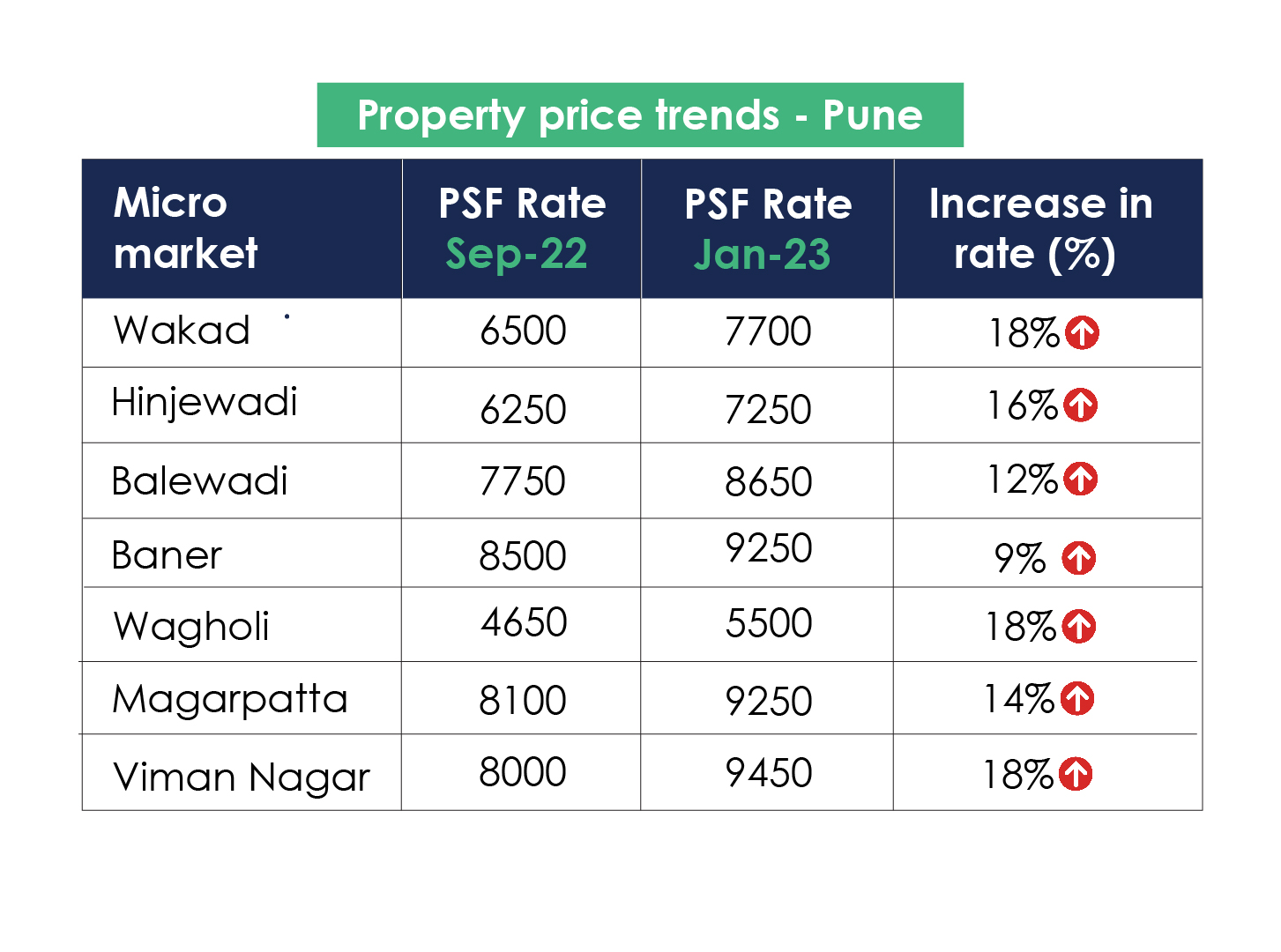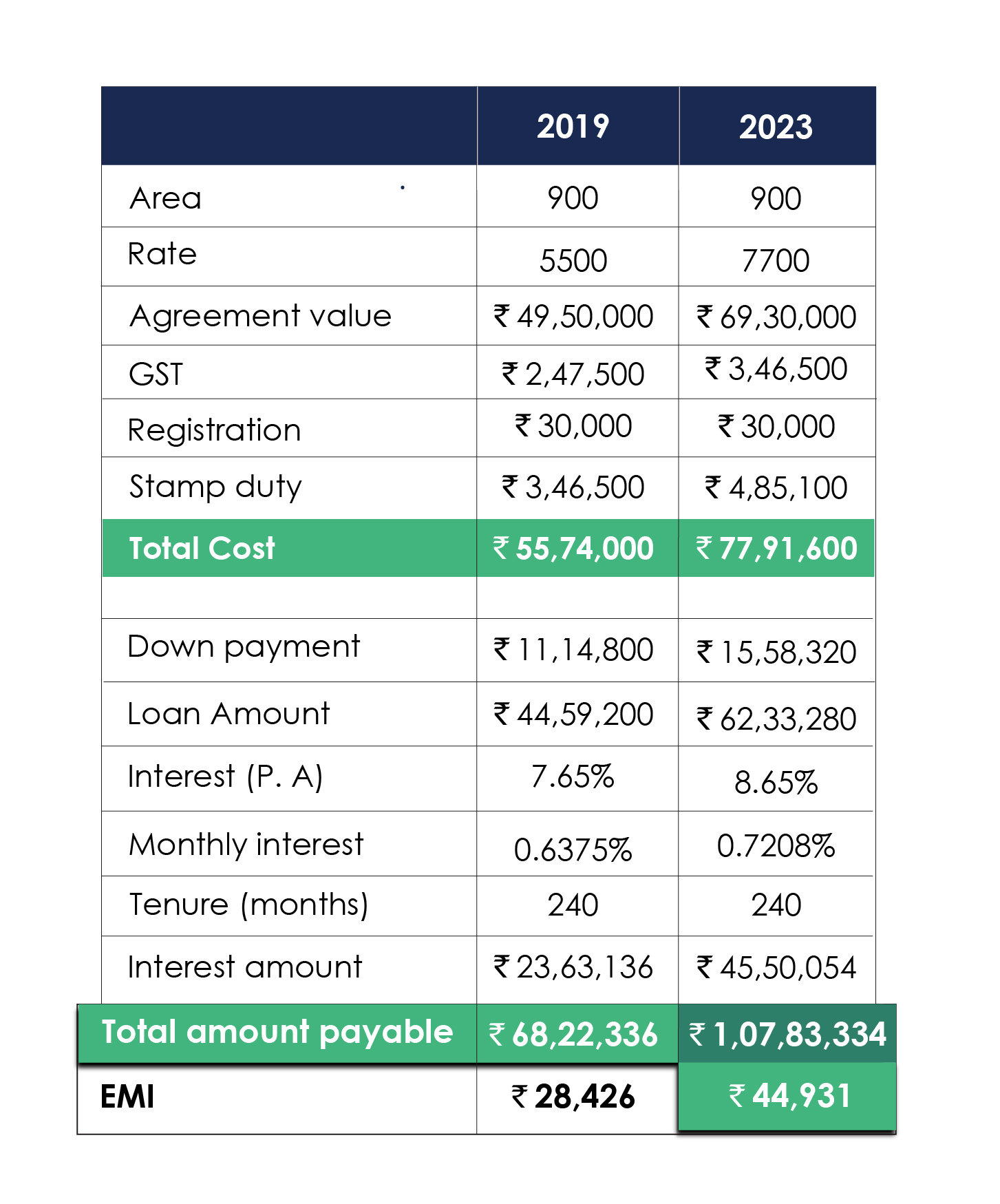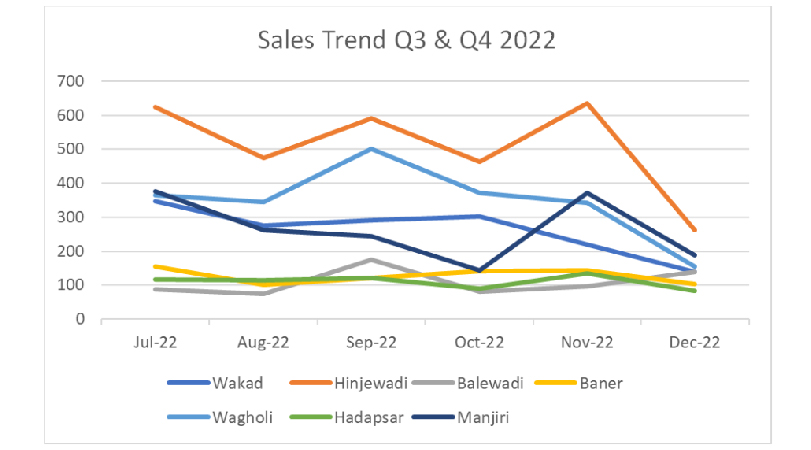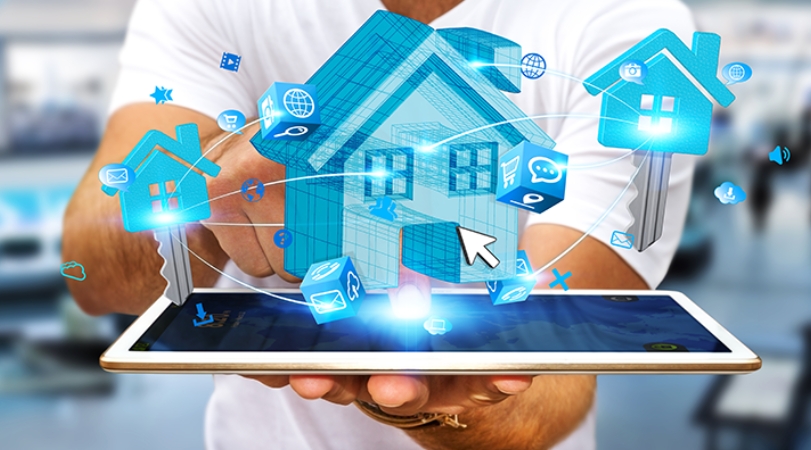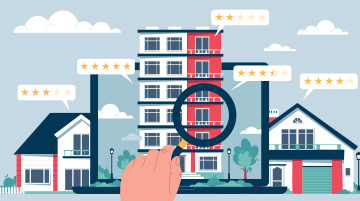PropTech or property technology refers to the tech tools used to optimize how real estate sales are planned and performed. It is a force that drives an ecosystem of inventive businesses and products across the commercial and residential real estate markets. It also led to huge investments post the global pandemic, and it is expected to hit almost 1TN USD by the end of 2030.
Commercial and residential real estate PropTech refers to the various tools PropTech companies use to probe, rent, and market residential and commercial properties. This includes property search platforms, construction planning and managing tools, evaluation and financing tools, asset utilization tools, etc., supported by blockchain, machine learning (ML), artificial intelligence (AI), virtual reality (VR), augmented reality (AR), the Internet of Things (IoT), and 5G.
Despite being new, the PropTech market has drastically modified various real estate trends. In today’s world, real estate businesses across the country are increasingly exploring integrated PropTech solutions to beat the challenges at the commercial and residential levels.
The conventional consumer real estate approach was hanging on word-of-mouth marketing and physically surveying the property. However, PropTech solutions have customized buying and selling experiences. Consumers can explore property and surroundings in real-time remotely. Further, the advent of real estate PropTech has enabled real estate buyers and sellers to establish agreements without any involvement of brokers.
The PropTech market has benefitted not only the consumers but also the developers. PropTech has made brand awareness, engagement, and advertisements comparatively cheaper than the conventional marketing model.
Real Estate PropTech Benefits to Consumers in India
Real estate Proptech benefits consumers by easing their search for a property and offering transparency. PropTech provides explicit awareness to consumers that avoid misreading and squandering. Check out a few significant benefits of PropTech to consumers.
![PropTech benefits for consumers]()
Easy Property Searching
With the ever-expanding potential of the PropTech market, the real estate space changed its marketing way. It now focuses on listing residential and commercial properties online for easy sales. This integrated PropTech approach has enabled consumers to view multiple properties from the comfort of their homes.
Further, numerous property search platforms backed by AI, sale tools, financing tools, and management tools (IoT-powered tools) offer customers easy access to properties with minimum brokerage fees and hidden expenses and their reviews and tools to rate the infrastructure, making properties easily searchable.
Secure & Seamless Buying
Property technology offers a seamless and straightforward model for buying a house. Its primary objective is to make the entire experience of buying a house more user-friendly and efficient. Many notable companies in the PropTech market offer property sale tools, evaluation and financing tools like transaction underwriting & management, debt financing platforms, etc.
With these tools, loans, mortgages, and refinance formalities can be completed online, at least partly. Further, blockchain technology can be used to confirm encrypted transactions and ensure that no tampering impacts financial records. It will make the buying process more secure and seamless.
Automation Of Paperwork
Real estate sales and purchases entail a lot of documentation and formalities. However, with digitization, online property paper verification tools, legal consulting, and notarization services, this aspect has been simplified and eased documentation, making the entire process easier for the consumer.
With the help of blockchain, Proptech helps buyers and sellers instantly create and authenticate contracts and essential documents. Real estate agents can use PropTech tools to do digital contracting. With the automation of paperwork, consumers can buy property easily.
3D Virtual House & Apartment Tours
PropTech technologies like 3D virtual tours and virtual reality (VR) help give consumers demos and virtual tours that effectively add value to the real estate experience. Consumers can move from one room to another, mount stairs, and even imagine homes that are not yet completed.
Most of these tools allow consumers to play around with the colors, textures, furniture, and fittings for a more authentic experience. Consumers can know the area, design, and ventilation of the property. This customization style certainly amuses consumers deeper as they can visualize themselves living in that house.
Direct & Effortless Communication
PropTech technology has allowed buyers and sellers to communicate directly, making the process more comfortable. Tools like blockchain, big data, and artificial intelligence (AI) provide customized buying and selling experiences. It also forms a socially interactive experience among buyers and sellers.
Many PropTech companies offer tools like online help, virtual assistants, and chats to help consumers clarify queries and apprehensions directly. In case the consumers need further assistance, actual calls are made by the sales or technical team to communicate with them.
Real-Time Updates at the Fingertips
With the rise in PropTech culture, consumers can keep everything at their fingertips with their mobile app for real-time updates. Various mobile app lets consumers keep documents, download agreements, obtain real-time notifications, view events & meetings, and much more.
Further, with tools like smart devices and sensors (IoT), property owners don’t have to inspect their properties physically, as all the updates about the property’s security and maintenance are accessible on a mobile screen.
Benefits of PropTech to Developers in India
Real estate developers are benefiting from the surge in new PropTech technological developments to bring digital changeover to the property industry. Let’s read through a few significant benefits of PropTech for developers.
![PropTech benefits for Developers]()
Smart Marketing & Sales strategies
Proptech big data tool is used to improve the marketing of properties to redefine target buyers and get better offers. Further PropTech tools have escalated real estate marketing strategies. Technology-enabled design and construction tools have helped observe growth, investment, leasing, buying, and selling options. Further
The focus is on accelerating the construction process, reducing waste, improving quality, and reducing the overall costs of construction. It is helping real estate developers indicate the most profitable locations to build a new property and choose the amenities that will suit the buyers.
Exploiting IoT, Robotics, Drone, & BIM
For real estate developers, PropTech allows accurate plan construction to reduce mistakes or failure to meet deadlines. Accurate planning of construction reduces, if not eliminates, the chance of critical mistakes or failure, which may result in millions lost.
Further efficient use of IoT-powered tools, robotics, drones, and building information modeling (BIM) offers successful data-driven decisive insights at a granular level. It helps predict property deals, efficient risk management, and enhance consumer engagement.
Transparent Communication & Payments
With the help of PropTech, most of the processes can be automated. This brings clarity to all stakeholders, management, employees, banks, channel partners, customers, etc. It allows commercial and residential developers to move towards smart documents and securitize using blockchain.
Further, property management platforms can use the payment facilitator model to create a secure and seamless payment experience for the consumer. Also, they can offer multiple payment options to facilitate the consumers.
Digital Inventory Management
Real Estate developers transfer a significant number of inventory regularly with their consumers. A digital inventory management tool is used to keep track of these inventory-related transactions.
It helps view and analyze data in real-time and facilitates inventory accounting. Furthermore, it allows for valuable statistics about how the business performs. This enables identifying trends and taking benefit of shifts in the real estate market.
Reports & Analytics
Real estate developers can predict a property’s future perils and prospects based on geography and other factors. PropTech allows for exceptional granularity of the research, which otherwise may not have been available. Thus, PropTech is transforming real estate reports and analytics.
PropTech companies use big data to forecast property prices with greater accuracy. Big data can also be used to improve the marketing of properties, as big data analytics tools can be used to redefine target buyers and get better offers. Big data can also help in risk analysis of investing in new projects.
Superior Post-Sales Services
Post-Sales Services allow developers to channel the requests of consumers to solve them all and thus guarantee their total satisfaction. Property real estate technology supports developers in providing superior post-sales services by following up and closing transactions.
It effectively converts leads into customers through features such as cost sheet management, post-booking communication, demand letter generation, payment reminders, customer loyalty, and other essential processes.
Conclusion:
PropTech has a massive mark on real estate for both developers and consumers. It has changed every facet of the real estate business. The blend of AI, automation, and big data has created an environment in which the PropTech market has strongly emerged.
India’s market has risen and produced some of India’s most notable PropTech companies. They offer unique tools and platforms that contain the various solutions required for the growth of the real estate sector in India.















